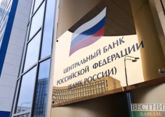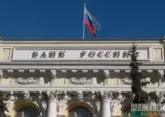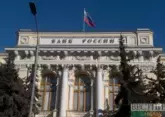The Board of Directors of the Bank of Russia at its first meeting this year decided to lower the key rate by 25 basis points to 7.5%, the regulator said in a press release.
The Bank of Russia also noted that annual inflation remains at a consistently low level, while inflation expectations are gradually declining.
"Short-term pro-inflationary risks have abated. Therefore the balance of inflationary and economic risks has shifted slightly towards the risks to economic growth. The uncertainty over the situation in global financial markets has increased. This year annual inflation is much less likely to exceed 4%. In this environment the Bank of Russia will continue to reduce the key rate and may complete the transition from moderately tight to neutral monetary policy in 2018," the regulator said.
The Board of Directors of the Bank of Russia will hold its next meeting on the key rate on March 23, 2018.
The professor at the department of the stock market and investments at the Higher School of Economics, Alexander Abramov, speaking with Vestnik Kavkaza, noted that the gradual decrease in the key rate allows the Central Bank to keep the Russian financial system in a stable state. "On the whole, it will help to lower the deposit rates at first, then the lending rates, although the value will be ultimately insignificant. On the one hand, both deposit and lending rates are relatively independent from the key rate now, but on the other hand, the 0.25% decline shows another signal against the current background - that the rate will decline very slowly," he explained.
Meanwhile, the reduction of the key rate will be continued. "This is predictable, since the rate of 7.5% with 2.2% inflation for the last month is a strange thing. Because it turns out that our inflation is at the level of European countries or the US, and our rate is more than 5 percentage points higher. It is not known how the central bank will do when inflation exceeds 2.2%," Alexander Abramov expects.
The advisor on macroeconomics to the CEO of the 'Opening-Broker' brokerage house, economist Sergey Hestanov, agreed with Abramov. "This decision was expected, the markets were waiting for the rate cut and were preparing for it, respectively, all expectations are already laid in both credit and deposit rates. In addition, in the near future the cost of raising funds for the deposit markets will be significantly lower, even lower than the cut rate. In such circumstances, as a rule, no rate manipulation has any real effect on either deposit interest or credit interest. Therefore, the decision of the Central Bank is rather nominal, "he said.
Sergei Hestanov also expects that the rate cut will continue under the pressure of ultra-low inflation. "Russia's inflation is setting a historical record, which will gradually push the Central Bank to reduce the key rate. But the Central Bank's rate reduction tactics will remain very slow. I think, the Central Bank will wait several months after this decline and, if inflation does not start to grow, it will consider the possibility of further lowering the rate," the advisor on macroeconomics to the CEO of the 'Opening-Broker' brokerage house concluded.










